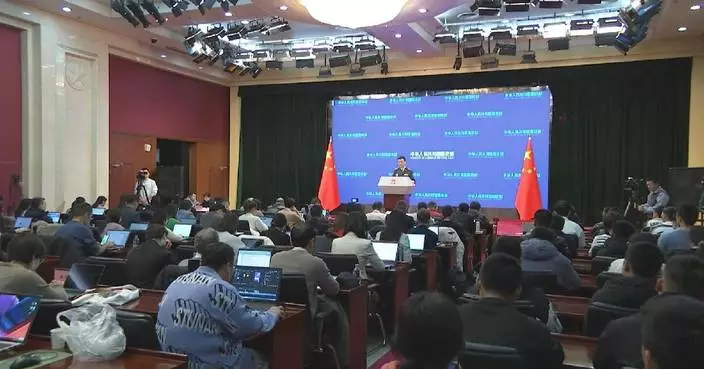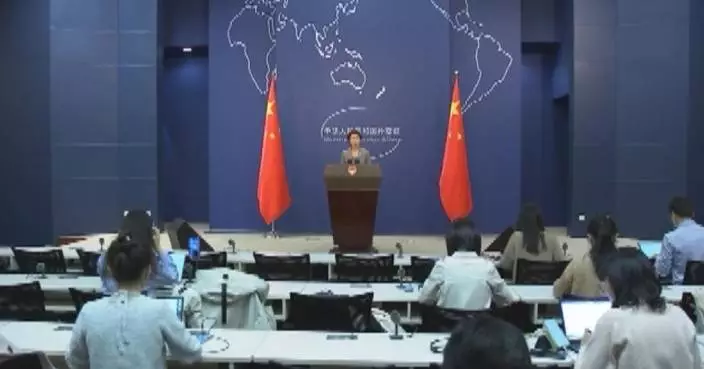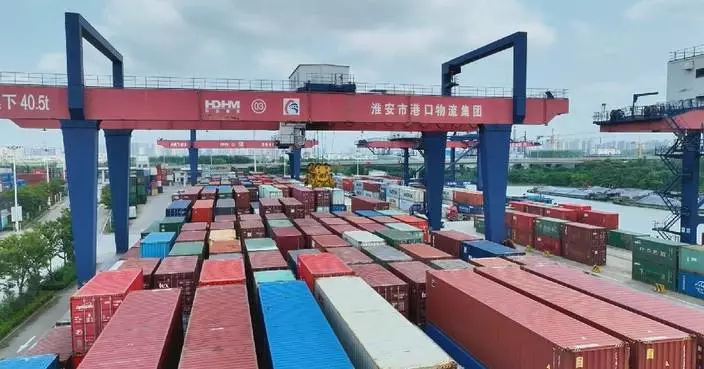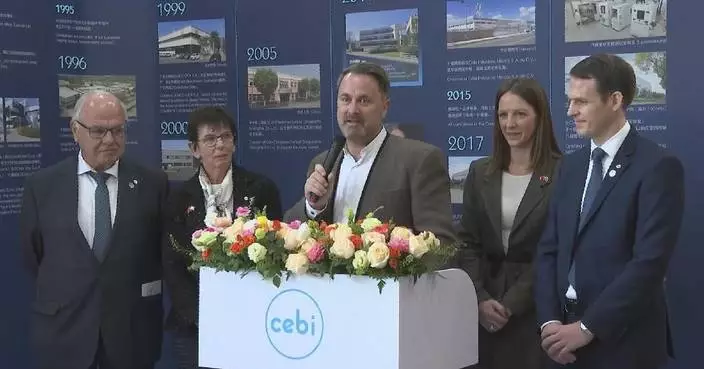China plans to develop a next-generation BeiDou satellite system that will be more powerful, technologically advanced, and capable of delivering higher-quality services.
The announcement was made by the China Satellite Navigation Office (CSNO) on Thursday at a symposium in Beijing to mark the 30th anniversary of the launch of the country's BeiDou Satellite Navigation System (BDS).
A development plan was released at the symposium outlining the roadmap towards the BeiDou system's next generation.
According to the timeline, key technology breakthroughs are expected by 2025, followed by the launch of three experimental satellites around 2027 to test new technologies. Network deployment is slated to begin around 2029, with the full system set to be completed by 2035.
The next-generation BeiDou system will deliver highly accurate, real-time navigation, positioning and timing with precision levels ranging from meters to decimeters, covering both Earth's surface and near-Earth spaces, according to the CSNO.
The system will optimize its constellation structure with satellites deployed in high, medium and low Earth orbits, to enhance the accuracy of time-space benchmarks and the system's autonomous operation capabilities.
It will also feature an integrated and efficient ground infrastructure, ensuring flexible resource allocation, data sharing and uninterrupted operations.
"The goal for 2035 is to build a more ubiquitous, integrated, and intelligent national space-time system. We not only need to improve precision but also ensure the system's reliability and trustworthiness. Moving forward, there will be many navigation methods, paving the way for a more intelligent, flexible, and networked navigation system," said Yang Changfeng, chief designer of the BDS.
China's BDS project was launched in 1994 with the construction of the BDS-1 and BDS-2 completed in 2000 and 2012, respectively. When BDS-3 was completed and put into service on July 31, 2020, China became the third country in the world to have an independent global navigation satellite system.
The BDS services and related products have been exported to more than 130 countries, providing users with diversified choices and better application experience, and promoting industrial development, according to a bluebook released in October.

China to build next-generation BeiDou system
The 2024 Kazakhstan Tourism Year in China officially closed on Wednesday in Almaty, the largest city in Kazakhstan, with fruitful results achieved in promoting travel between the two countries. An international tourism forum was held within the framework of the closing ceremony. About 300 people, including Kazakhstan's Vice Minister of Tourism and Sports Yerkinbayev Yerzhan Malikovich, Chinese Consul General in Almaty Jiang Wei, and representatives from tourism and media of both countries, attended the event.
Yerkinbayev said that Kazakhstan plans to expand passenger capacity at land ports connecting the countries and increase investment in tourism infrastructure construction to attract more Chinese tourists.
"We are seeing more and more Chinese tourists coming to Kazakhstan, so we should improve tourism infrastructure and not let these visitors down. Today at the forum we announced that we will open new border crossings and improve the facilities at existing ones. Some improvement work has already started this year, making these crossings convenient not only for the clearance of goods but also for people," he said.
"The leaders of the two countries have announced that 2025 will be the Chinese Tourism Year in Kazakhstan. We are looking forward to the series of activities planned by our Chinese colleagues, and will fully support every event to be held in Kazakhstan next year," he added.
Jiang, the Chinese Consul General in Almaty, said that all-round and high-level China-Kazakhstan tourism cooperation has been launched, which will inject new impetus into promoting mutual understanding between the two peoples and building a more meaningful and dynamic China-Kazakhstan community with a shared future.
"Since the launch of the Kazakhstan Tourism Year event, departments at all levels of the two countries, especially the tourism departments, have held promotion meetings, forums, and tourism exhibitions in both countries, providing tourists with a variety of colorful activities. Such events have opened up windows for promoting mutual understanding and friendship between the peoples of the two countries and enhancing mutual learning between civilizations," Jiang said.
At the closing ceremony, the Ministry of Tourism and Sports of Kazakhstan presented the "Most Influential International Media Cooperation Award" to CCTV-4 Channel of China Media Group (CMG), commending the three-part documentary "Bond with China—For the Common Dream" produced in cooperation with the Khabar Media Group of Kazakhstan.
The program was launched in July this year at a China-Kazakhstan cultural exchange event organized by CMG, and was aired simultaneously on China's CCTV-4, the TV channels under the Khabar Media Group, and Atameken TV.
Daniyel Serzhanuly, deputy chairman of the board for the Kazakh Tourism National Company, said that the documentary showcases the culture and beautiful scenery of Kazakhstan to Chinese audiences. He expressed hope for deepened cooperation in media between the two countries.
"Among the more than 30 cooperation projects implemented under the tourism year program, there are media cooperation projects. The most successful one is the three-part documentary about Kazakhstan produced in cooperation with CCTV-4. The program was launched before the SCO Summit, which showed the tourism potential of Kazakhstan to Chinese audiences and improved Chinese people's understanding of Kazakhstan," he said.
Two sub-forums and a B2B tourism business negotiation meeting were also held within the framework of the closing ceremony.
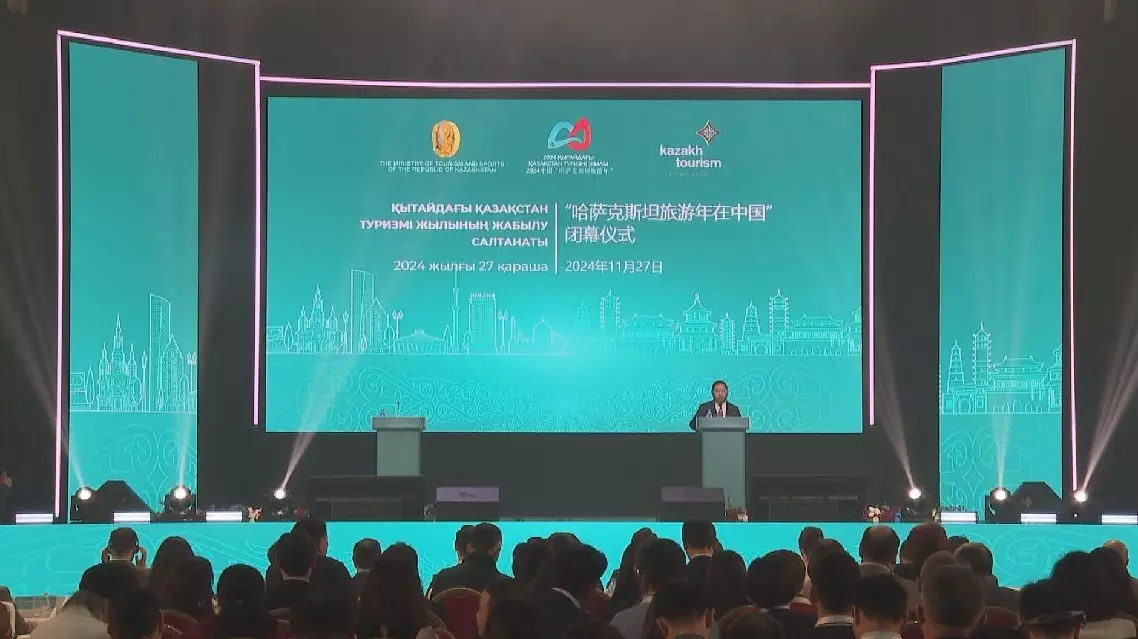
2024 Kazakhstan Tourism Year in China closes with fruitful results




